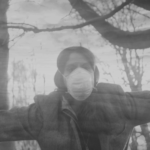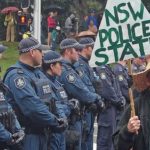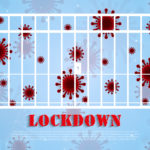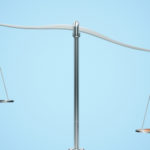The Need for Parliamentary Oversight is Greater Than Ever
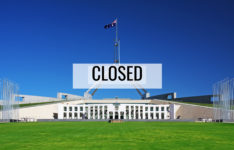
The Morrison government shut down federal parliament due to concerns around the spread of COVID-19 on 23 March. And besides a special reduced sitting day set to take place on 8 April, the chambers in Canberra aren’t expected to start operating as usual until 11 August.
Not to be left out, the Berejiklian government passed a raft of emergency laws on the following day, and then proceeded to close down its state parliament until mid-September.
So, what we’ve got now are executive governments passing laws by decree. The scenario is simple, the newly-created national cabinet – the PM plus state premiers and territory chief ministers – meet to discuss new COVID prevention measures.
Then our dear leader Scott Morrison stands at a podium late night before reporters to announce to the nation the new pandemic restrictions coming into play. And on the following morning, state executives announce these new orders are now local laws, which will be enforced.
Unsurprisingly, once politicians, judicial officers and civil liberties advocates came out of their initial COVID-19 shock, they began to grasp the implications of this bloodless coup that the Liberal Nationals were able to pull off quite seamlessly.
Extraordinary powers
“One of the first victims of this terrible pandemic has been functioning parliamentary oversight,” said NSW Greens MLC David Shoebridge. “We’ve seen the parliaments effectively being shut right at a time when the executive branch of government is massively expanding its reach and powers.”
“That’s a bad combination,” he added.
Federal and NSW executives are relying on provisions within pre-existing legislation that enables emergency powers to be enforced during a health crisis. The Morrison government has invoked the Biosecurity Act 2015 (Cth), while in this state, it’s the Public Health Act 2010 (NSW).
These pieces of legislation allow government to issue orders – both personal and society wide – that pertain to curbing certain behaviours, self-isolation and closures of public places. However, the laws don’t actually advise closing down parliament for the duration of a crisis.
“This isn’t just about the money and the financial response, it’s also about the fundamental direction of the health response and the massive expansion of police powers,” Shoebridge told Sydney Criminal Lawyers. “This is all happening with minimal public scrutiny.”
Holding government to account
The closure of parliament is not something that’s been mirrored in all nations around the globe. Although, across the ditch in New Zealand, the Ardern government has closed down its single chamber of parliament, but it’s done so in a very different manner.
On 25 March, the NZ government established the Epidemic Response Committee, which is a group of eleven members of parliament – top-heavy with opposition MPs – which has the mandate of providing scrutiny over the government’s decisions and actions during the COVID-19 crisis.
The committee is meeting via video conferencing three times a week. And this meeting is being broadcast on televisions and radio, so citizens across the nation are aware of how government ministers are justifying the actions they’ve been taking.
Mr Shoebridge outlined that the NZ model is most likely the best way to ensure that the executive branch of government isn’t permitted to simply rule unchecked. And he added that it’s the path the Greens are advocating for in this country, so governments can be held to account.
The Kiwi cross-party committee is chaired by NZ opposition leader Simon Bridges, who explained in The Guardian that it has already scrutinised such areas as COVID-19 testing and police powers, while it’s ensured that vulnerable people within the community can still access newspapers.
Silencing dissent
Straight after the NSW premier shut down state parliament, Shoebridge moved to form the Public Accountability Committee, which was designed to provide oversight of the state Liberal Nationals executive’s actions during the pandemic.
With strong support from Labor, the oversight committee was in the bag. “However, last week, the Labor opposition agreed with a government motion to not have that inquiry undertake any public hearings until after the middle of May,” Shoebridge said.
The Greens justice spokesperson further explained that the Berejiklian government gained opposition support in “effectively shutting down the one credible oversight option in NSW”, as it asserted it didn’t want any interference in the state COVID-19 response.
“That was a deeply unfortunate position to adopt,” Shoebridge went on, “because the purpose of the committee is not to interfere with the government’s response, but to seek clarification from it, and ensure that there’s ongoing oversight of it.”
And turning to the federal level, when parliament returns for one day of sitting mid-week to pass the the COVID-19 wage subsidy package, the Labor opposition, along with the Greens, minor parties and independents, will be calling for a committee to be established similar to the NZ one.
A police state
If the increasingly authoritarian Berejiklian government had allowed the state oversight committee to operate, those making up its members may have queried the premier’s decision to hand over the running of the state COVID-19 response to the NSW Police Force.
Over the weekend following the closure of NSW parliament, it was publicly announced that NSW police commissioner Mick Fuller had been charged with overseeing the local response to the unprecedented health crisis.
Since 31 March, this response has included a ban on assembling with more than one person outdoors, as well as a prohibition on being outside without “a reasonable excuse”. And these laws are being enforced by police officers under threat of steep penalties, including six months prison.
“You cannot arrest your way out of a pandemic,” Shoebridge said, adding that rather than implementing laws to fill up correctional facilities, the state should be going through a process of decarceration to prevent a COVID-19 outbreak within the overcrowded NSW prison system.
As to whether the totalitarian creep may outlast the pandemic, the Greens MLC made certain that although most of the emergency powers have a time limit of 6 to 12 months, over the last decade that he’s been observing NSW police, he’s never seen it hand back any powers it’s been granted.
“No sunset clause has ever set on any terrorism laws or police power laws,” Mr Shoebridge warned. “And of course, people should be anxious as to whether or not the sun will set on these extended police powers.”


